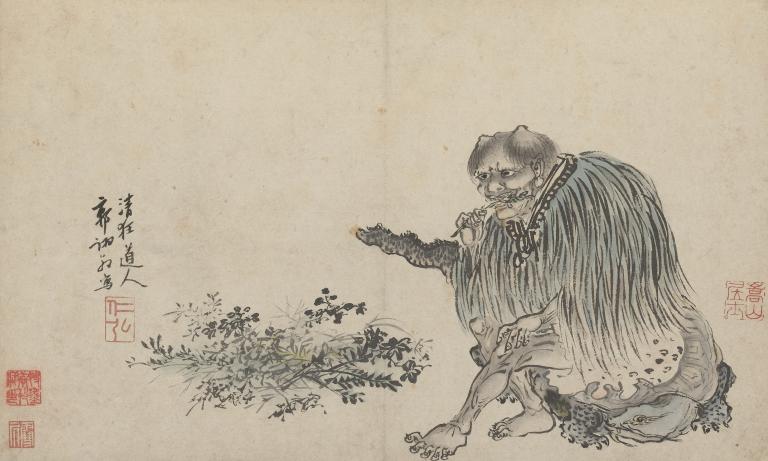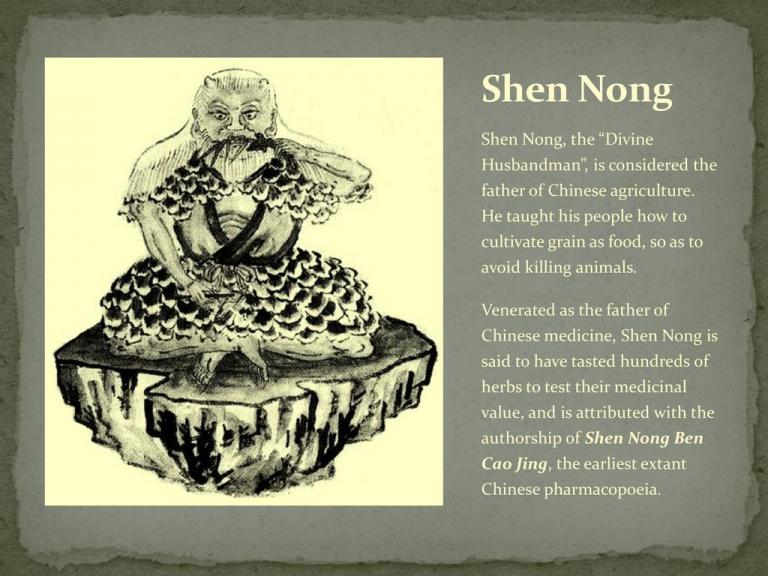Shennong Tests 100 Herbs
2 min readTraditional Chinese remedies include various types of animal, vegetable, and mineral substances. However, the majority are made from plant products. As a result, the traditional Chinese term for medicinal remedies and their application is bencao (herbal medicine).
Most Chinese medical classics concerning the theory and clinical application of traditional remedies use the term bencao(herbalm medicine)in their titles.

According to one of China’s most popular legends, Shennong, the Chinese god of medicine and farming originated traditional Chinese medicine when he personally tested one hundred herbs, of which sev- enty were poisonous, on himself in a single day. Shennong is another name of the Yan Emperor, one of the legendary ancestors of the Chinese people. Primitive human society had very limited productive capability.
Humanity had not yet learned to cultivate and propagate agricultural crops and relied entirely on hunting and gathering for survival. People lived in caves, eating raw meat and whatever wild fruit, seeds, and roots they could find to allay their hunger. There were many opportunities for m to accidentally consume poisonous plants, re- sulting in purging process of trial and error, human- ity’s ancestors grad e effects and uses of various plants. They determined which were pois edible, and which had therapeutic applications.
For instance, they discovered that rhuba s diarrhea, melon stalks induce vomitin nd g, and ginger relieves nausea.as humanity learned to utilize va ants to achieve specific effects, the science of herbal medicine was born. Through hunting and fishing, early humans also discovered that certain animal parts also had distinct therapeutic properties. The legend of Shennong testing herbs upon himself is a metaphor for the Chinese ancestors’long process of discovering the properties of medicinal herbs.
As their store of practical experience in- creased over the ages, herbal medicine progressed from sivea occasional, intuitive applications to a com- prehensive and scientific system, culminating in the compilation of the fundamental herbal treatise, Shennong Bencao Jing (Shennong’s Classic of Herbal Medicine)(. 100 BC). Although its authorship has been attributed to the legendary Shennong, this encyclopedic directory of the therapeutic properties and clinical applications of medicinal herbs was certainly not the work of a single person. Most likely, it represents a distillation of the collective knowledge of the clan ruled by the Yan Emperor(Shennong) and his descendants.









